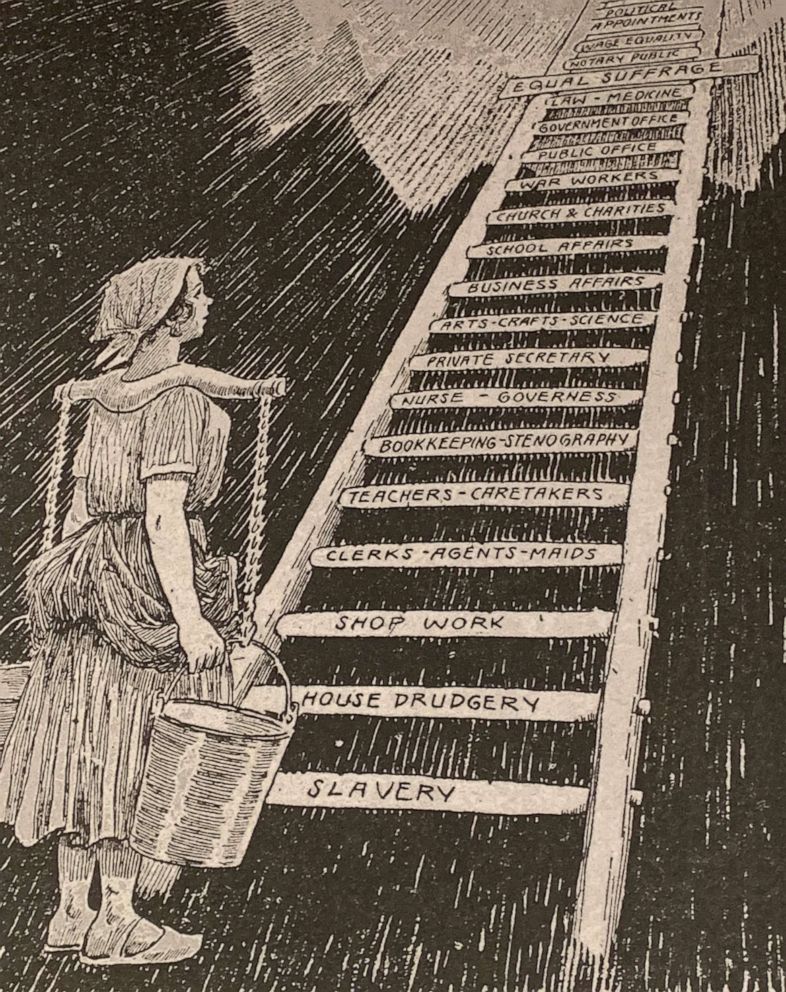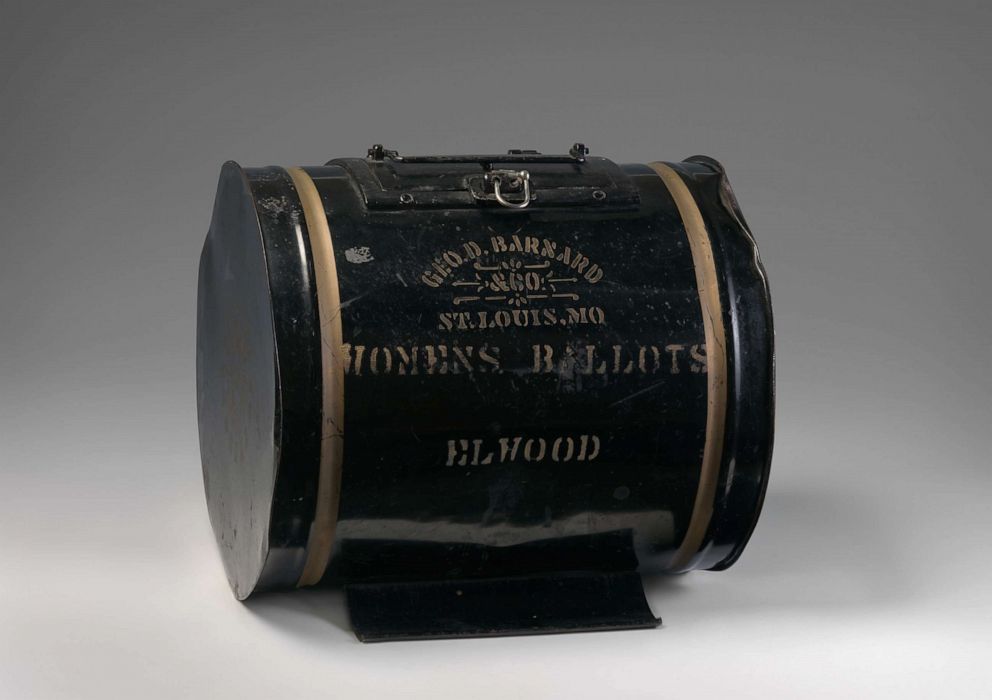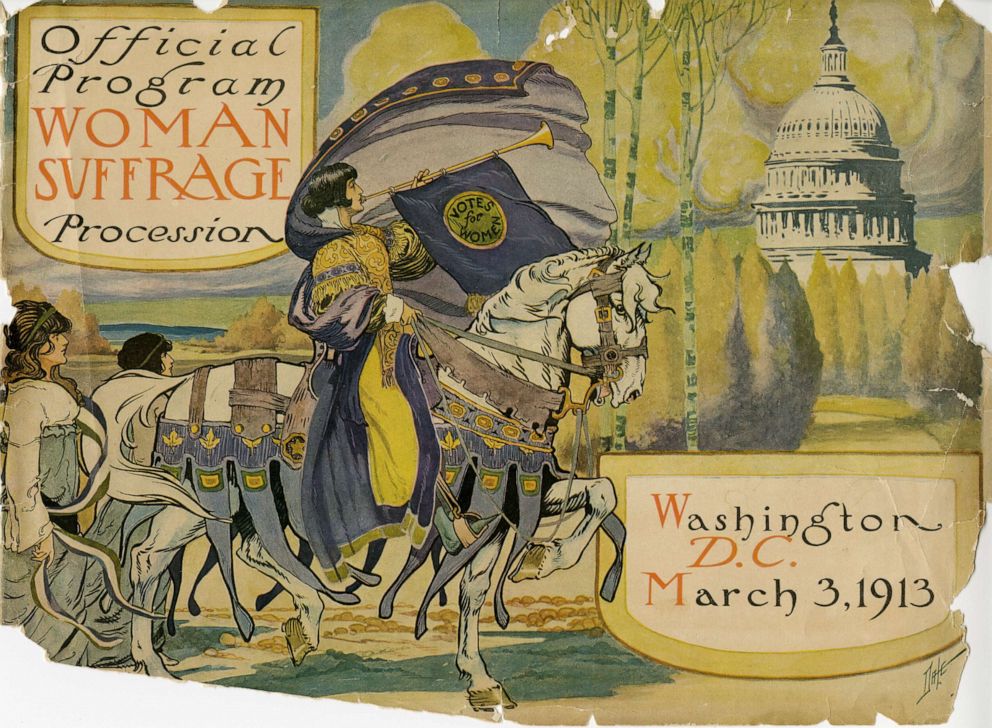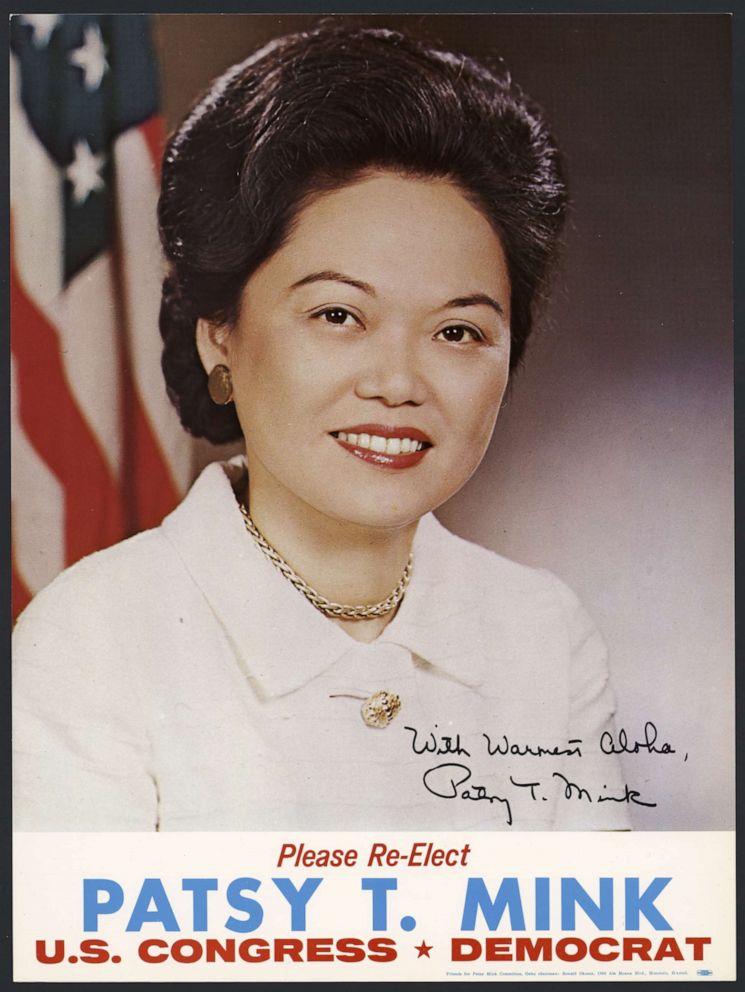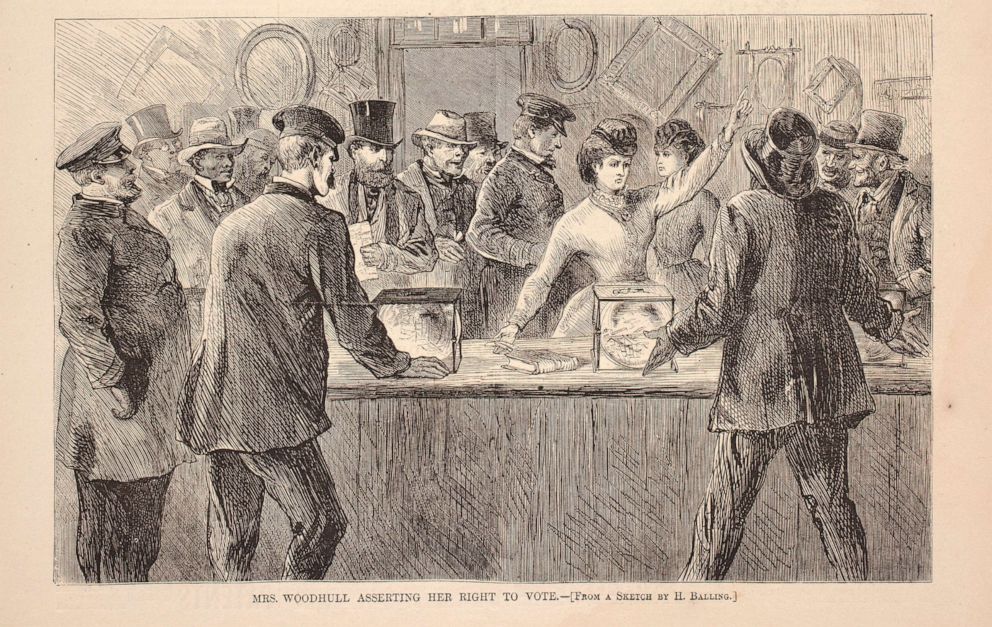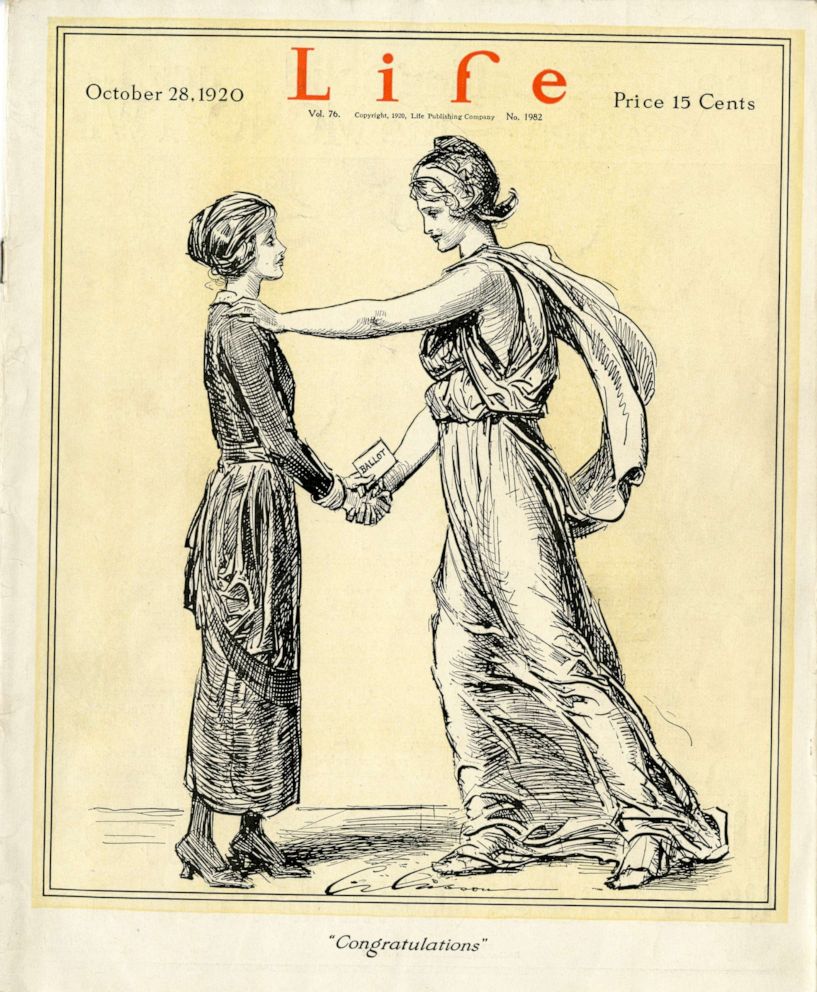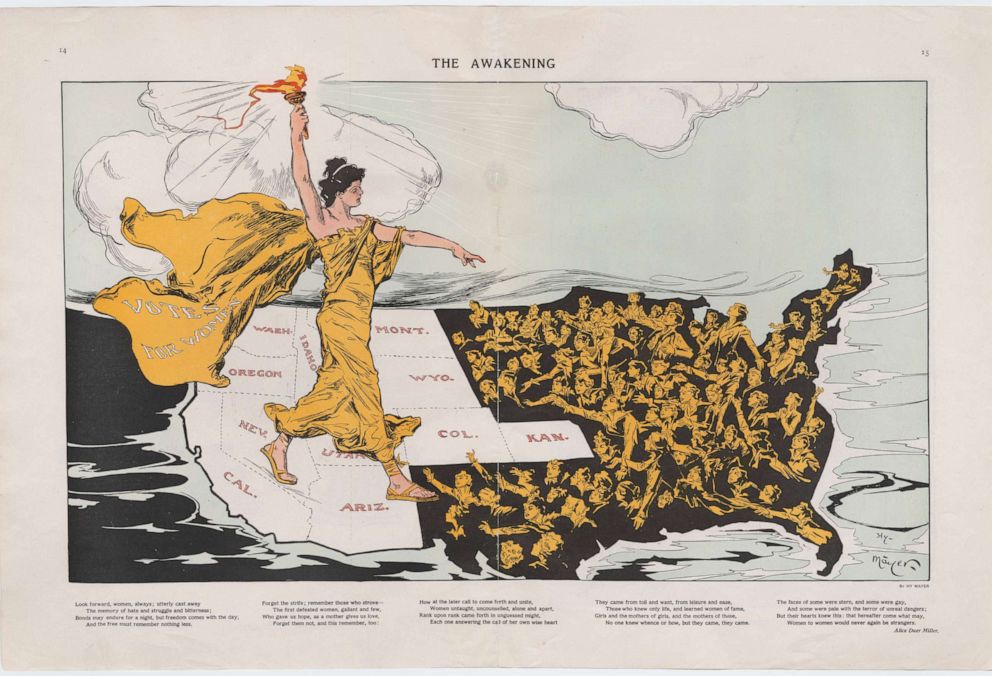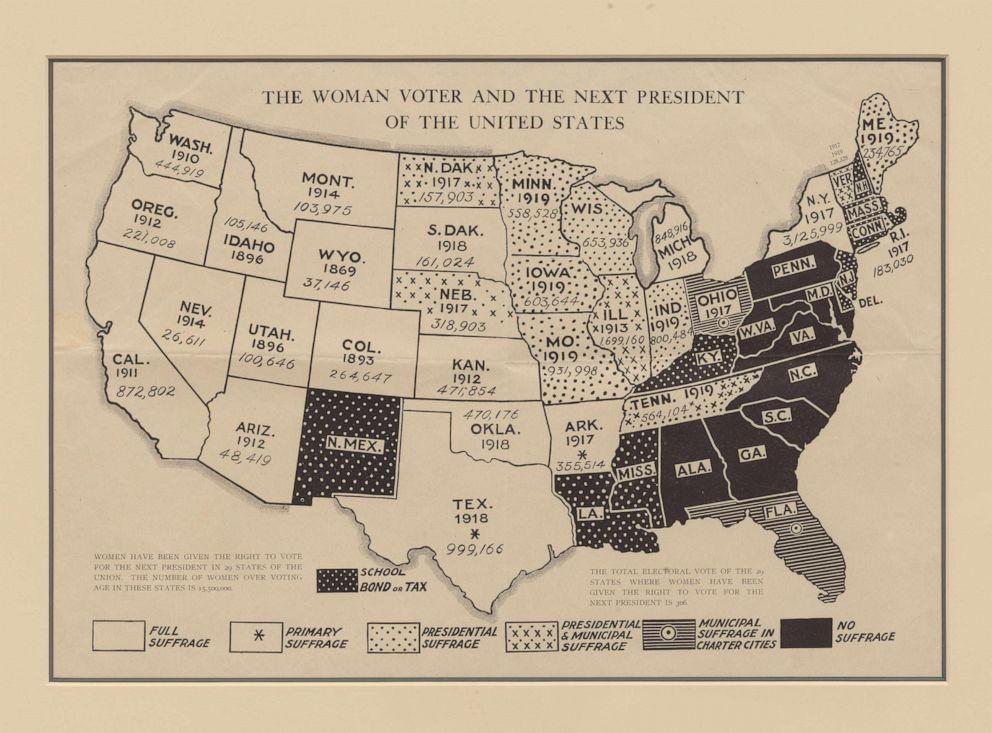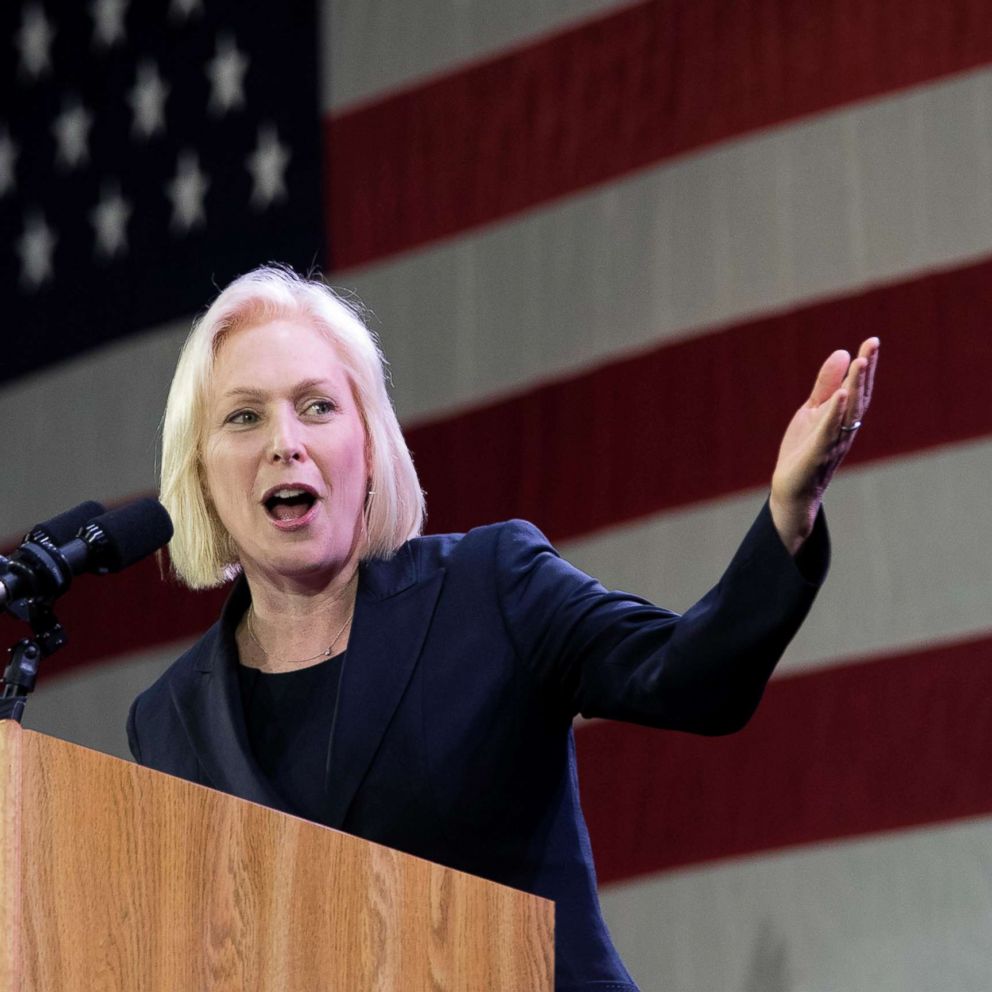See inside an exhibit that documents 80 years of women fighting for the right to vote
Hillary Clinton and Nancy Pelosi spoke at the exhibit's opening in Washington.
2020 will be the year of the women, no matter who wins at the ballot box.
Next year the U.S. will mark the 100th anniversary of the passage of the 19th Amendment, which guaranteed and protected women's right to vote.
Part of celebrating the 19th Amendment's 100th anniversary will include looking back at all the women who fought to make sure future generations of women had the right to vote.
"Votes for Women: A Portrait of Persistence" is a newly-opened exhibit at the Smithsonian's National Portrait Gallery in Washington, D.C., that outlines the more than 80-year movement for women's suffrage.
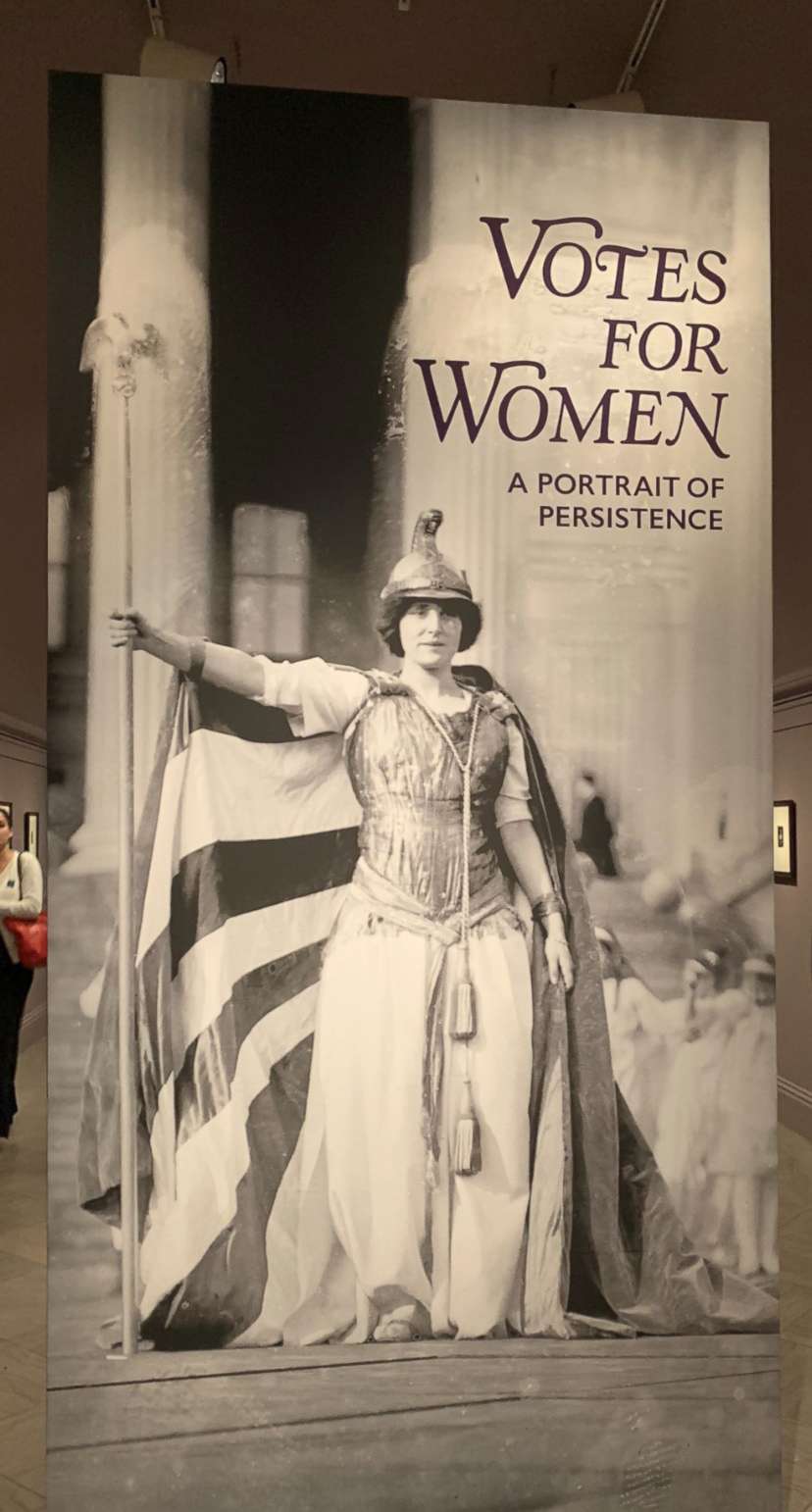
The exhibit opened in March with a gala dotted with attendees in white -- the color of the woman suffrage movement -- and headlined by the first female to hold the office of Speaker of the House, Speaker Nancy Pelosi, and Hillary Clinton, who has set many firsts in her political career as first lady, senator, secretary of state and presidential candidate.
"Think about how hard it was and think about what each of us can do to make sure that all that struggle never is in vain, that we will remain committed to ensuring equality and the right to vote," Clinton said at the March 28 event.
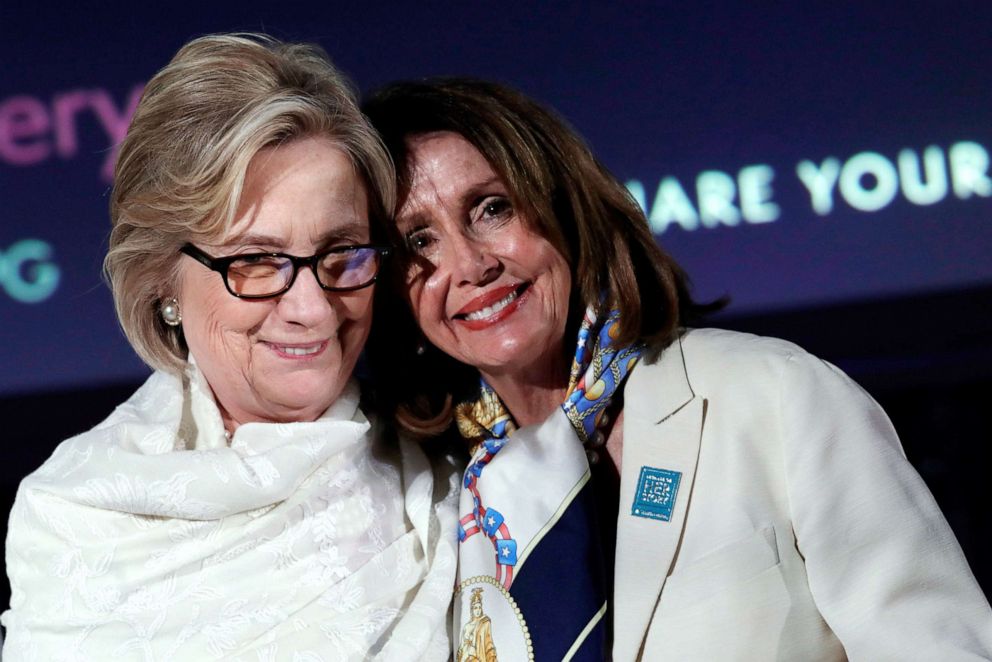
The exhibit will be on display through January 2020. It features women whose names deserve to be remembered, including Susan B. Anthony, Elizabeth Cady Stanton, Ida B. Wells, Mary Church Terrell and many more.
It comes at a time when a record number of women are serving in Congress after an unprecedented number of female candidates ran for the first time in 2018.
Historian Kate Clarke Lemay, the curator of the exhibit, said she hopes people "see women everywhere and realize that women are half the population in this country and really deserve to be highlighted as major parts of American history."
Take a look at some of the items on display documenting 80 years of women fighting for the right to vote.
